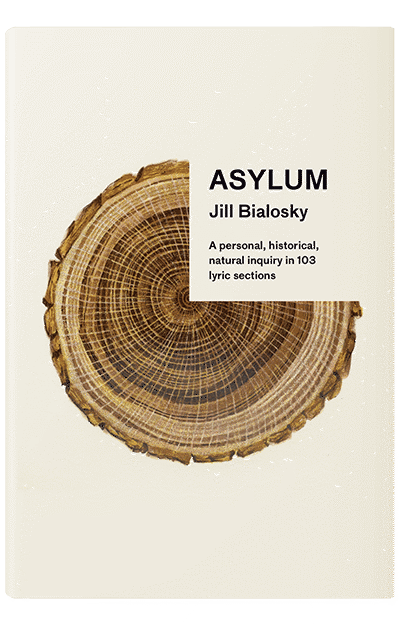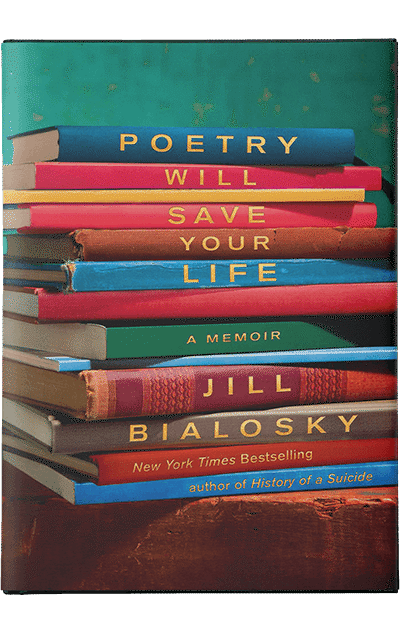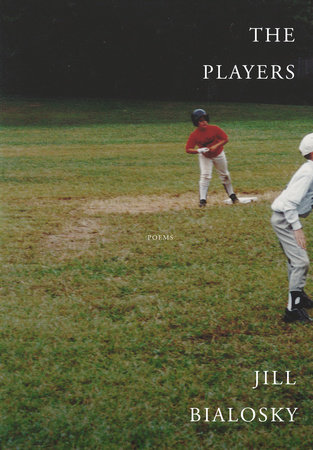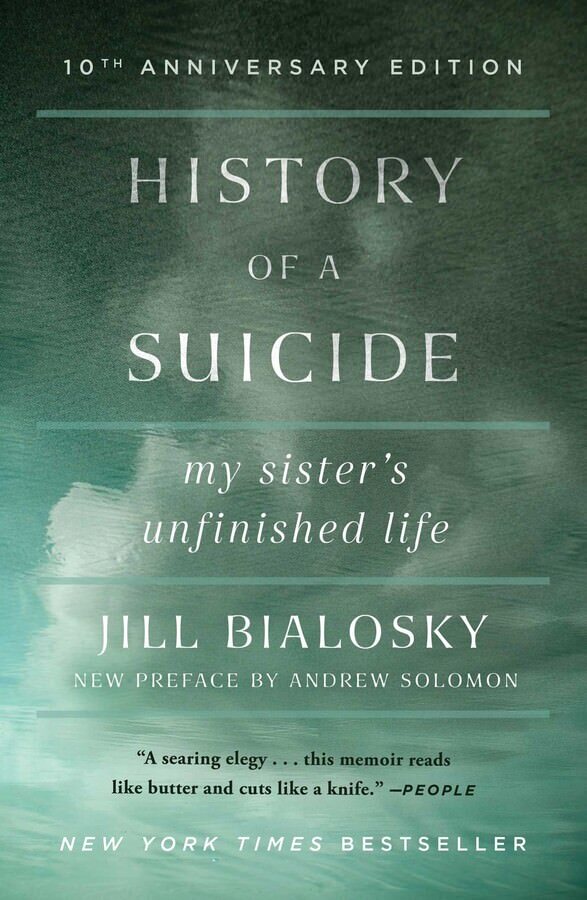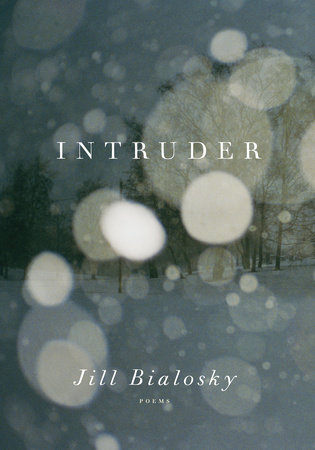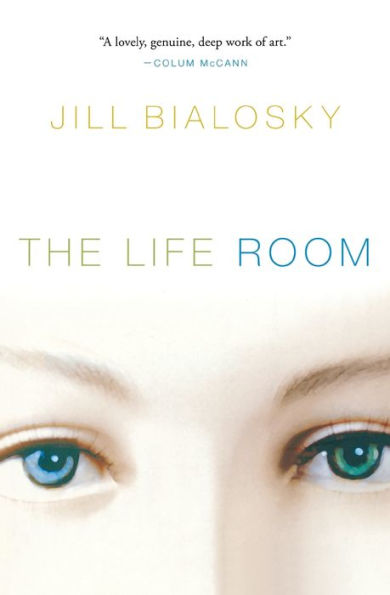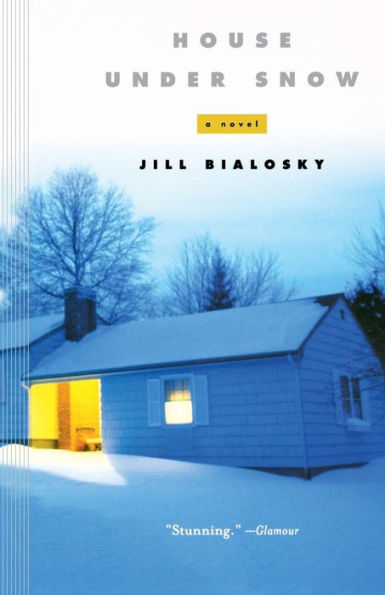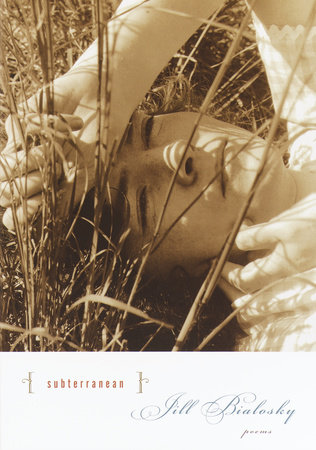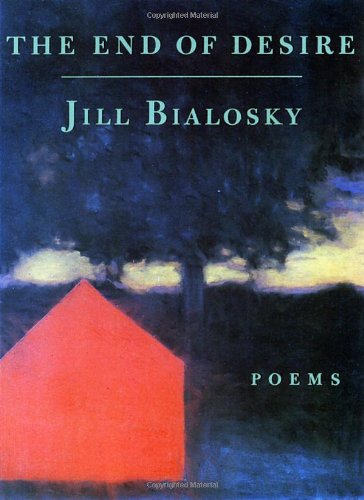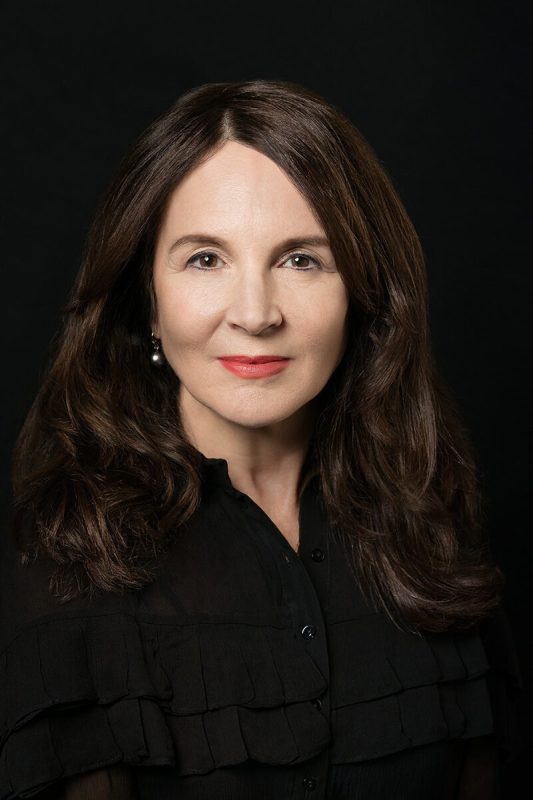
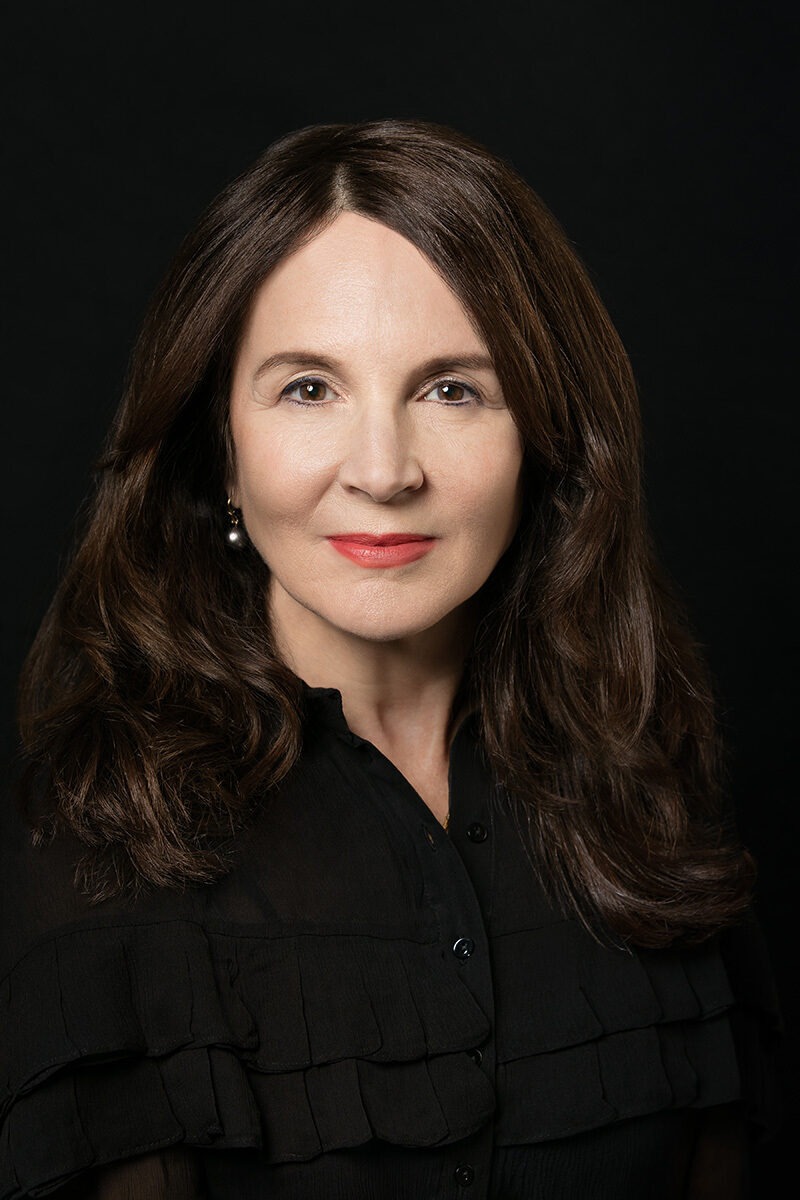
Jill Bialosky
Acclaimed Poet and Novelist
Best-Selling Memoirist
National Jewish Book Award Finalist
Executive Editor at W. W. Norton
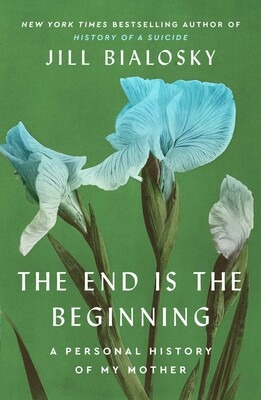
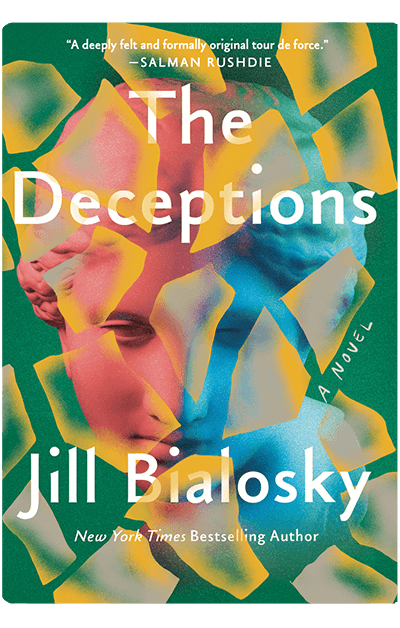
Readings &
Lecture Topics
- An Evening with Jill Bialosky
Biography
“Haunted by her sister’s suicide and by political and environmental collapse, Bialosky finds refuge in nature and language, all the ways ‘the mind seeks / to keep itself from torture.’” —New York Times Book Review
“Bialosky has a way of inserting information in her text with such precision and authority that’s hard not to be admired while reading. Bialosky is a master of the craft.” —The Brooklyn Rail
“Bialosky transcends genre, weaving tragedy, language, and perception in a poignant work of personal and public exploration. Erudite and devastating.” —Publisher’s Weekly (starred review)
Jill Bialosky’s newest volume of poetry Asylum: A Personal, Historical, Natural Inquiry in 103 Lyric Sections, was a finalist for the National Jewish Book Award. She is the author of five acclaimed collections of poetry, including Intruder, which was a finalist for the Paterson Poetry Prize; three critically acclaimed novels, including The Prize and, most recently, The Deceptions, a finalist for the Gotham Book Award; and two memoirs, Poetry Will Save Your Life, and the New York Times bestselling memoir History of a Suicide: My Sister’s Unfinished Life. Her forthcoming memoir, The End is the Beginning: A Personal History of My Mother, will be out from Simon & Schuster in May 2025.
Of Bialosky’s most recent work, her novel The Deceptions, Salman Rushdie observed: “The great Greeks — Odysseus, Heracles, Aphrodite, and, centrally, Leda and the swan — circle around this powerfully written account of a woman in a kind of slow crisis and help her interrogate her marriage and desires. Then, in an extraordinary, explosive final act, a profound act of betrayal lifts the novel toward genuine tragedy. The Deceptions is a deeply felt and formally original tour de force.”
Her poems and essays have appeared in The New Yorker, The Atlantic Monthly, Harper’s, O Magazine, The Kenyon Review, Harvard Review, Paris Review, and Best American Poetry, among others. With Helen Schulman, she co-edited the anthology, Wanting a Child. In 2014 she was honored by the Poetry Society of America for her distinguished contribution to poetry.
She is an Executive Editor and Vice President at W. W. Norton & Company.
Short Bio
Jill Bialosky’s newest volume of poetry Asylum: A Personal, Historical, Natural Inquiry in 103 Lyric Sections, was a finalist for the National Jewish Book Award. She is the author of five acclaimed collections of poetry; three critically acclaimed novels, including The Prize and, most recently, The Deceptions; and two memoirs, Poetry Will Save Your Life and the New York Times bestselling memoir History of a Suicide: My Sister’s Unfinished Life. Her forthcoming memoir, The End is the Beginning: A Personal History of My Mother, will be out from Simon & Schuster in May 2025. Her poems and essays have appeared in The New Yorker, The Atlantic Monthly, Harper’s, O Magazine, The Kenyon Review, Harvard Review, Paris Review, and Best American Poetry, among others. With Helen Schulman, she co-edited the anthology, Wanting a Child. She is an Executive Editor and Vice President at W. W. Norton & Company. In 2014 she was honored by the Poetry Society of America for her distinguished contribution to poetry.
Videos
Publications
The End is the Beginning: A Personal History of My Mother
Memoir, 2025
Jill Bialosky, the poet behind the “tender, absorbing, and deeply moving memoir” (Entertainment Weekly) History of a Suicide, returns with a lyrical portrait of her mother’s life, told in reverse order from burial to birth.
When Iris Yvonne Bialosky died in an assisted care facility on March 29, 2020, it unleashed a torrent of emotions in her daughter, Jill Bialosky. Grief, of course, but also guilt, confusion, and doubt, all of which were compounded by the arrival of the COVID-19 pandemic which made it impossible for Jill to be with her mother as she was dying and to attend her mother’s funeral.
Now, with a poet’s eye for detail and a novelist’s flair for storytelling, Jill presents a profoundly moving elegy unlike any other. Starting with her mother’s end and the physical/cognitive decline that led her to a care home, The End Is the Beginning explores Iris’s battle with depression, the tragedy of a daughter’s suicide, a failed second marriage, the death of her beloved first husband only five years into their young marriage, her joyful teenage years, and the trauma of losing her own mother at just eight years old. Compounding her challenges of raising four daughters without a livelihood or partner, Iris’s life coincided with an age of unstoppable social change and reinvention, when the roles of wife and mother she was raised to inhabit ceased to be the guarantors of stability and happiness.
As we see Iris become younger and younger, we learn how we are all the sum of our experiences. Iris becomes a multi-dimensional, fascinating woman. We come to understand her difficulties and shortcomings, her neediness and her generosity, her pride and her despair. The End Is the Beginning is not just a family memoir, it is a brave and compassionate celebration of a woman’s life and death and a window into a daughter’s inextricable bond to her mother.
The Deceptions
Novel, 2022
Something terrible has happened and I don’t know what to do. An unnamed narrator’s life is unraveling. Her only child has left home, and her twenty-year marriage is strained. Anticipation about her soon-to-be-released book of poetry looms. She seeks answers to the paradoxes of love, desire, and parenthood among the Greek and Roman gods at the Metropolitan Museum of Art. As she passes her days teaching at a boys’ prep school, spending her off-hours sequestered in the museum’s austere galleries, she is haunted by memories of a yearlong friendship with a colleague, a fellow poet struggling with his craft. As secret betrayals and deceptions come to light and rage threatens to overwhelm her, the pantheon of gods assume remarkably vivid lives of their own, forcing her to choose between reality and myth in an effort to free herself from the patriarchal constraints of the past and embrace a new vision for her future.
The Deceptions is a page-turning and seductively told exploration of female sexuality and ambition as well as a human drama that dares to test the stories we tell ourselves. It is also a brilliant investigation of a life caught between the dueling magnetic poles of privacy and its appropriation in art and literature. Celebrated poet, memoirist, and novelist Jill Bialosky has reached new and daring heights in her boldest work yet.
Asylum
Poetry, 2020
In Asylum, poet Jill Bialosky embarks on a Virgilian journey, building a narrative sequence from 103 elegant poems and prose sections that cohere in their intensity and their need to explore darkness and sustenance both. Taken together, these piercing pieces – about her nascent calling as a writer; her sister’s suicide and its still unfolding aftermath; the horror unleashed by World War II; the life cycle of the Monarch butterfly; and the woods where she seeks asylum – form a moving story, powerfully braiding despair, survival, and hope. Bialosky considers the oppositions that govern us: our reason and unreason, our need to preserve and destruct. “What are words when they meet the action of what they attempt to modify?” she asks, exploring the possible salve of language in the face of pain and grief. What Asylum delivers is a form of hard-won grace and an awareness of the cost of extreme violence, inexplicable loss, and the miraculous cycles of life, in work that carries Bialosky’s art to a new level of urgency and achievement.
Poetry Will Save Your Life
Memoir, 2017
In Poetry Will Save Your Life, poet, novelist, and New York Times bestselling author Jill Bialosky takes a wholly original approach to memoir, refracting her life through the prism of poems that have shaped, inspired, and helped her make sense of the world around her. At once highly personal and marked by keenly observed universal themes, Bialosky’s probing exploration touches on both familiar poetic classics and lesser-known gems that have had special significance.
“Poems are made from the lives lived, borne out of experiences and shaped by solitary thought,” Bialosky writes. “Like a map to an unknown city, a poem might lead you toward an otherwise unreachable experience, but once reached, you recognize it immediately….This memoir is also a form of mythmaking, for experiences are heightened, altered and shaped by the form in which they are told….and the poems I present provide to a certain extent a window into my way of thinking and associating. Such is the mystery and wonder of a poem.”
Bialosky’s lifelong immersion in poetry began in the fourth grade with the discovery of Robert Frost’s “The Road Not Taken.” An awkward child whose father died before she was old enough to remember him, Bialosky finds that the poem speaks to her of an alternative life where her father had lived and her mother was happy and offered her a way to think about her own path she might forge. As her life progresses from girlhood to adolescence to adulthood and motherhood, poems bear witness to her experiences, large and small, to the ways in which we live in the world and to our shared humanity. Emily Dickinson provides insight into questions of faith, Sylvia Plath illuminates the mysterious pull of depression, Louise Gluck on envy, James Wright and Keats on first love. Poems offer signposts for the significant moments in a life — sexual awakening, leaving home, the loss of a parent and the deaths of a child, the joys of motherhood, a sister’s suicide, a mother’s aging, the day in New York City when the Twin Towers fell.
Bialosky frames each poem with its Life and Afterlife — chronicling how the poem spoke to her at a formative time and also how its meanings and implications have deepened for her over time. As an acclaimed poet and editor herself, Bialosky moves beyond the personal to investigate the essence of what makes these poems more widely significant, explicating the art of poetry for readers who will surely find their own connections to these poems — and to others and in doing so demystifies poetry and makes a compelling argument for its necessity in our lives.
With equal parts candor, empathy, and passion, Jill Bialosky shows how intricately tied poetry is to our own experiences and, at the same time, offers a celebration of the power of an enduring art form. Poetry Will Save Your Life is a singularly moving and illuminating work from “a fearless and clear-eyed and compassionate writer” (George Howe Colt, author of November of the Soul).
The Prize
Novel, 2015
Edward Darby has everything a man could hope for: meaningful work, a loving wife, and a beloved daughter. With a rising career as a partner at an esteemed gallery, he strives not to let ambition, money, power, and his dark past corrode the sanctuary of his domestic and private life. Influenced by his father, a brilliant Romantics scholar, Edward has always been more of a purist than an opportunist. But when a celebrated artist controlled by her insecurities betrays him, and another very different artist awakens his heart and stirs up secrets from his past, Edward will find himself unmoored from his marriage, his work, and the memory of his beloved father. And when the finalist of an important prize are announced, and the desperate artists maneuver to seek its validation, Edward soon learns that betrayal comes in many forms, and that he may be hurtling toward an act that challenges his own notions about what comprises a life worth living. A compelling odyssey of a man unhinged by his ideals, The Prize is also an unflinching portrait of a marriage struggling against the corroding tide of time and the proximity to the treacherous fault line between art and money.
The Players
Poetry, 2017
The strongest collection yet from this widely praised poet is about the central players in our lives, our relationships over time — between mother and son, mother and daughter-and how one generation of relationships informs and shapes the next.
The opening sequence of the collection “Manhood” looks at the insular world of baseball, shedding light on the complexities of gender, boyhood, and coming of age. The poet captures the electrifying, proud language of baseball talk, channeling the tone and approach of the young men she observes as a mother and bringing poignance and deeper understanding to the transaction between herself as observer and the young men she sees growing into adulthood. “American Comedy” is a sonnet sequence about the absurdities and realities of modern domestic life; figures in literature are the players in “Classical Education.” The final section, “The Players,” makes a forceful and disturbing revelation as to how generations hand down both strengths and weaknesses. Exploring the nature of attachment on many levels, The Players brings us Jill Bialosky at her best in poems that find a new language to describe the rich and universal story that is modern motherhood.
History of a Suicide: My Sister's Unfinished Life
Memoir, 2012
On the night of April 15, 1990, Jill Bialosky’s twenty-one-year-old sister Kim came home from a bar in downtown Cleveland. She argued with her boyfriend on the phone. Then she took her mother’s car keys, went into the garage, closed the garage door. She climbed into the car, turned on the ignition, and fell asleep. Her body was found the next morning by the neighborhood boy her mother hired to cut the grass.
Those are the simple facts, but the act of suicide is anything but simple. For twenty years, Bialosky has lived with the grief, guilt, questions, and confusion unleashed by Kim’s suicide. Now, in a remarkable work of literary nonfiction, she re-creates with unsparing honesty her sister’s inner life, the events and emotions that led her to take her life on this particular night. In doing so, she opens a window on the nature of suicide itself, our own reactions and responses to it — especially the impact a suicide has on those who remain behind.
Combining Kim’s diaries with family history and memoir, drawing on the works of doctors and psychologists as well as writers from Melville and Dickinson to Sylvia Plath and Wallace Stevens, Bialosky gives us a stunning exploration of human fragility and strength. She juxtaposes the story of Kim’s death with the challenges of becoming a mother and her own exuberant experience of raising a son. This is a book that explores all aspects of our familial relationships — between mothers and sons, fathers and daughters — but particularly the tender and enduring bonds between sisters.
History of a Suicide brings a crucial and all too rarely discussed subject out of the shadows, and in doing so gives readers the courage to face their own losses, no matter what those may be. This searing and compassionate work reminds us of the preciousness of life and of the ways in which those we love are inextricably bound to us.
Intruder
Poetry, 2010
The lover who whispers “Is it still snowing? … Will you stay with me?” in the first poem reappears throughout the book in different guises — sometimes seemingly real, at other times as muse, doppelgänger, or dream. In “The Seduction,” as the lovers stand to watch a house fire — “gorgeous, dazzling, / the orange and reds of such ruin” — the poem becomes a study in the nature of reality, selfhood, and the different levels of consciousness we inhabit. Evoking Penelope and Orpheus and Eurydice, Bialosky explores how desire and the act of creation can both threaten the self and bring us to a powerful self-understanding.
In Intruder — her most mesmerizing gathering of poems yet — Bialosky has captured not only the fleeting truths and pleasures of passion but also its mysterious dangers.
Don’t be afraid. Come closer.
It’s bath time. The boy’s in the tub,
father’s shaving, mother is dressed
in her evening wear: black silk slip,
high heels, leaning on the tub’s edge.
.….
Look into the mother’s eyes.
What truth do they belie?
from “Saturday Night”
The Life Room
Novel, 2007
Eleanor Cahn is a professor of literature, the wife of a preeminent cardiac surgeon, and a devoted mother. But on a trip to Paris to present a paper on Anna Karenina, Eleanor re-connects with Stephen―a childhood friend with whom she has had a complicated relationship―that forces her to realize that she has suppressed her passionate self for years. As the novel unfolds, we learn of her hidden erotic past: with alluring, elusive Stephen; with ethereal William, her high school boyfriend; with married, egotistical Adam, the painter who initiated her into the intimacies of the “life room,” where the artist’s model sometimes becomes muse; and with loyal, steady Michael, her husband. On her return to New York, Eleanor and Stephen’s charged attraction takes on a life of its own and threatens to destroy everything she has.
Jill Bialosky has created a fresh, piercingly real heroine who struggles with the spiritual questions and dilemmas of our time and, like Tolstoy’s immortal Anna Karenina, must choose between desire and responsibility.
House Under Snow
Novel, 2003
Subterranean
Poetry, 2003
Jill Bialosky follows her acclaimed debut collection, The End of Desire, with this powerful sequence of poems that probes the subterranean depths of eros. Gerald Stern has called Bialosky “the poet of the secret garden, the place, at once, of grace and sadness,” and here she enters that garden again, blending the classical with the contemporary in bold considerations of desire, fertility, virginity, and childbirth. Written against the idealizations of romantic love and motherhood, she tells of the loss of one child and the birth of another, the fierce passions of life before children, the seductions of suicide, and the comforts of art. Throughout, she braids and unbraids the distinct yet often inseparable themes of motherhood, love, and sexuality. “When he comes to me,” she writes,
half-filled glass
in his hand, wanting
me to touch him, I hear
you stir in your crib. I know what your body
feels like.
The soft skin of a flower, not bruised, not yet
in torment…
Subterranean is the moving and intimate account of the emergence of a female psyche. Like the figures of Persephone and Demeter, who appear in various forms in these poems, Bialosky finds a strange beauty in grief, and emerges from the realms of temptation with insight and distinction.
The End of Desire
Poetry, 1999
Jill Bialosky’s first collection of poems is an exceptional one–moving, very accomplished, marked by an unflinching realism and a sharply observant eye combined with great technical skill. Childhood and adolescence shattered by a father’s death and the struggles of a mother to raise her daughters are among its concerns. The poems have a dignity and magic that are quite distinctive.
Articles & Audio
Read What’s In Print
• The Messy House of Memoir – Writer’s Digest
• An Interview with Jill Bialosky on The Deceptions – Chicago Review of Books
• The Corrosive Stigma of Aloneness: On Jill Bialosky’s The Deceptions – LA Review of Books
• On Asylum: A Review – The Kenyon Review
• Asylum: A Conversation with Jill Bialosky – The Adroit Journal
• Obsession and Urgency: An Interview with Jill Bialosky – BOMB Magazine
Listen to Audio
Selected Writings
The Deceptions (an excerpt, originally published in The Cut)
I can’t write in there. With all his stuff. It’s his room. It’s not like he isn’t coming back home. The prodigal son, my husband says, and sighs. He misses him too. I move the gold heart on the chain of my necklace back and forth. It’s wobbling. Heavy. I hear him in the kitchen chopping vegetables. I come to join him. Let me help, I say. Once we delighted in making all-day pot roasts and splendid layers of potatoes au gratin, tomato pie. Long mornings in bed. He’s a kind man. Generous. When I’m sick, he makes me cups of tea and strains the chicken pieces from the chicken soup. When we grocery shop, he carries the heavy bags home. When I travel, he plants a set of earplugs in my carry-on so I can listen to films on the airplane screen. On the weekends, he gets up early and goes to Fairway for fresh muffins. He splits the household chores, brings home tulips for our table. This week they’re bright yellow, they’ve opened slightly, revealing delicate black stamens and dusts of pollen like a shedding of blood at the end of the month, fallen to the table. There is no map to follow. Marriage is a geological problem. Two forces of competing desires create instability in a rock formation. I must step carefully, watch where I tread. Don’t start anything. We haven’t learned how to be alone together again since my son’s been gone. I’ve got it, he says. Go finish reading your article.
The rain falls down the windows, leaving puddles overflowing on the outdoor sill. Cars on the street slosh through flooding water. The window, a dark kaleidoscope. Streets damp and dark. Like a madman, Poseidon continues to wield his rage, tumbling trash cans, hurling garbage into the streets, forcing rats underground. My mind won’t quiet. The impending review. The Visiting Poet. The work it requires to repress. My mind grinds through it all.
My husband checks out the scores on the TV with a dish towel tucked into his pants. Boyish, with nerdy black glasses that leave indentations on each side of his nose, hair tousled and a sheen of sweat on his face from the game’s excitement. He points at the screen, raging at the quarterback for making a terrible pass like he does to the pundits on CNN who won’t confront the political spin. He’s become an alarmist. He listens to the news at night and shakes his head. It’s a zoo out there, he says.
I look from the review to see my husband staring at me. He does that now, as if he knows something I’m not telling him. What, I say. Nothing, he says. He goes back to the kitchen and stops at the dining room table. Are you planning to clear off your work, he says, raising his eyebrows, so we can eat? He picks up the advance reader copy—ARC—of my new book. The Rape of the Swan. A sonnet sequence that ends in violation and loss. In her email yesterday, my editor said it’s the first book from the press that the NYT has deemed worthy of review. Why would they review a book from a small press only to trash it? They Wouldn’t give it to Hugh Pynyon, would they? I feel sick.
I tuck my papers in my tote bag for Monday and bring the rest into the bedroom. Put down my ARC on the dresser. Wander into my son’s room, collapse on his bed, thrust my face in his pillow, smell the Axe shampoo he insists upon. He has a touch of vanity, something new I have noticed in this generation of boys. I long to smell the top of his head, to see him flash me his smile.
I go back to the bedroom, to the ARC of my book on my dresser, and flip through it. All the years of tinkering that went into each sonnet. All the years of rejection before my first book was taken. The Bell Jar was rejected by Plath’s poetry editor, until it rose from the ashes to become a sensation. Published only a month before she died. A poet who never knew the depth of how she was admired. It doesn’t seem fair. I roam back to the living room still holding the ARC. In graduate school I sometimes questioned whether I had a gift or was just wasting time, whether my desire to write—my need—was stronger than my voice. Even after publishing in established literary magazines, two critically acclaimed books, the doubts still creep in.
My husband attacks vegetables in the kitchen with a paring knife. He does everything with force. I stand on the other side of the counter. I can no longer contain it. I heard from my editor on Friday. My book is going to be reviewed by The New York Times Book Review, I say. That’s great, my husband says. Isn’t that what you’ve always wanted? I nod. So what’s wrong, then? he says looking up.
What if it’s bad? Mehta can’t wait to humiliate me in our department meetings. Did I tell you what he did last week? He accused me of treating the boys like my children after a scuffle in the hallway. Said that I’m not tough enough. He thinks he’s teaching at a military academy. Do we have to talk about him again? my husband says, going after the carrots now as if they will run away. He looks back at me. That’s great about your book, he says again. Really.
I retreat to the bathroom, slam down the toilet-seat cover. Sit. Lean over and put my head in my hands. How can I tell my husband my hope is that the review will elevate me, a minor poet, into the limelight? How would he understand how important this is? If it’s good, I might win a prize. Leave my institution for something bigger, grander. No. I shake my head. But he would understand. I steel myself before wandering back into the kitchen. What’s happening to me? I take out the plates, wine glasses, and silverware to set the table. Our best linen napkins. Why not celebrate?
My husband uncorks a bottle of red while the sauce in the pan simmers. I put Swan Lake in our CD player on the counter. Why not? I love Tchaikovsky’s opening. I’ve heeded to the magical story of the water nymph, visualizing her long, welcoming gestures waiting for something grand and magical to happen while composing my long poem.
This is my prince, my husband, with his dish towel tucked into his waist, his uncombed hair pushed back. He has beautiful hair, thick with little gray, and a cleft in his chin. He bears a scar on his left cheek that runs from the corner of his ear to his cheekbone. A tussle with his good-for-nothing father (his words), when his mother asked him to fetch him for dinner from the bookie who lived in one of the neighboring apartments in their building. His drunken father pushed him away, my husband fell, gashed his cheek on the corner of a table. It’s raised and bubbly from never having healed properly. I’ll never forgive his father.
I set the table. Fold the napkins into little pockets I learned waitressing in college and place the fork inside. I put the yellow tulips in the pitcher in the center of the table, fuss with their arrangement until I’m satisfied, then stand back to admire them.
That cover of your book. What is it? I left the ARC at the other end of the table. He picks it up. The Rape of the Swan, he says, that’s what it’s called?
Five acts. Each act a crown of sonnets where the first line of each sonnet repeats the final line of the preceding one. The poem is meant to realize the music and destruction of romantic love. Its relentlessness. Its repetition. Its agony. In an early draft, I composed it in free verse, but it felt like it needed to be reined in. And then I thought of Shakespeare’s sonnets of love, tried it in blank verse, and it spun to life. One slant rhythm allowing me to find another. How to explain. How when I’m composing, I sail into the ether of my imagination. Places where desire, loss, anger, confusion reside. Dark, raw, dangerous. I sometimes don’t like what’s revealed. The painful abduction in The Rape of the Swan left me blanched and quivering. Two swans are a strong team when together, but if the male is away, the female will often stop eating. Male swans are loyal, they help to incubate the eggs and care for their cygnets for eight to nine months after they’re born. Male swans vigilantly guard their nests, preventing their mates from being with another male. If another male threatens the nest, the male swan will busk, flaring his wings, grunting and honking in agitation. When the perpetrator threatened the female swan, I felt her fear, as if it were my own life threatened.
How relieved I used to be to hear my husband come home from work, the jangle of his keys dropped on the wood counter. I’d go into the bathroom and take a shower like a guilty lover, embarrassed by the smell and deceit of my mental labor, and out of the shower, while I listened to him chop onions to the sound of the NewsHour I’d feel calm again.
It’s an engraving by Cornelis Bos I saw at an exhibition of drawings and prints at the Met a few years ago, I say. He made it after a painting by Michelangelo. It inspired the earliest version of the poem. It’s an image of the myth of the rape of Leda by Zeus disguised as a swan. So, your book is about a rape? he asks. I pause. Possibly. Or a transgression. I pause again, draw my finger to my lips. It’s for the reader to decide, I say.

